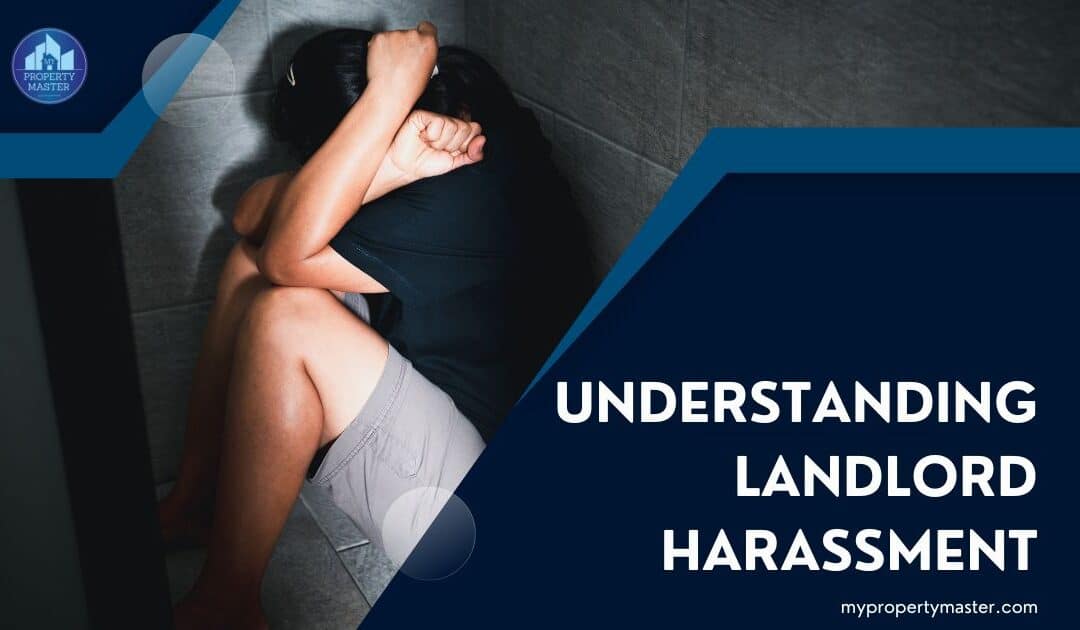A tenant can sue a landlord for harassment of $2000 for each law violation. Tenants can sue landlords for any law violations, including harassment such as sexual solicitations, emotional distress, etc.
This $2000 is not a fixed amount, and it can go up based on other factors that I will discuss very soon.
Living in a rented property should be a stress-free experience, but unfortunately, some tenants face the daunting issue of landlord harassment.
In this post, I’ll discuss the legal aspects of suing a landlord for harassment, explore the compensation you might be entitled to, and shed light on your rights as a tenant.
Let’s get started.
Recognizing landlord harassment

Recognizing landlord harassment involves identifying persistent, unreasonable behavior from a landlord that interferes with a tenant’s right to peaceful enjoyment of their home. This may include unwarranted eviction threats, frequent invasive inspections, or intentional disruption of essential services.
Harassment can manifest as verbal abuse, unjustified rent increases, or unwarranted entry without notice.
Tenants should be vigilant, documenting incidents and seeking legal advice if they suspect harassment. Recognizing these signs is crucial for protecting tenant rights and ensuring a safe and habitable living environment.
Related: What rights do tenants have without a lease?
The legal grounds for suing

Before diving into the compensation details, it’s essential to establish the legal grounds for suing a landlord. This will cover the scenarios where harassment claims are valid, including invasion of privacy, discriminatory practices, and unjust eviction threats.
As a tenant, you have legal grounds to sue your landlord if they breach the implied warranty of habitability, providing an unsafe living environment. Retaliatory eviction for exercising your rights, discrimination, lease agreement violations, and failure to make timely repairs are also valid reasons.
If you face persistent harassment, such as unjustified entry or threats, legal action is warranted. Document incidents, seek advice, and remember your rights to a habitable, harassment-free home.
Understanding these legal grounds empowers you to protect your rights and maintain a secure living space. Consult a legal professional for personalized advice on your situation.
Read also: Being evicted with no place to go (The solution)
Documenting the harassment
To build a strong case, documentation is key. Keep a detailed record of incidents, noting dates, times, and descriptions of each occurrence. Save any written communication, texts, or emails from the landlord. Take photos or videos if applicable.
Include the names of witnesses if present. This meticulous documentation serves as evidence in legal proceedings, supporting your case against landlord harassment.

It strengthens your credibility, helps establish a pattern of behavior, and assists legal professionals in understanding the extent of the issue. Timely, thorough documentation is your ally in seeking justice and safeguarding your rights as a tenant.
Read also: Can you go to jail for not paying rent? (Understanding the legal consequences)
Seeking resolution amicably
Before resorting to legal action, explore methods of resolving the issue amicably. This might involve communicating your concerns to the landlord, involving a mediator, or reporting the harassment to local housing authorities.
Understanding compensation

Now, let’s tackle the heart of the matter – how much compensation can you sue a landlord for harassment?
As mentioned earlier, you can sue $2000 for each law violation. Some factors will influence the amount, including emotional distress, financial losses, and the duration and severity of the harassment.
Understanding compensation is vital when pursuing legal action against a landlord. Compensation may include reimbursement for financial losses, medical expenses, or harassment-related property damage.
Additionally, it can encompass damages for emotional distress caused by the landlord’s actions. Legal professionals assess the specifics of your case to determine the appropriate compensation. Awareness of potential financial recovery ensures you adequately compensate for the harm endured.
Consultation with a lawyer specializing in landlord-tenant issues is crucial to understanding the compensation you may be entitled to and navigating the legal process effectively.
Emotional distress
Explore how emotional distress resulting from landlord harassment plays a pivotal role in determining compensation. Understand the psychological toll and its impact on your daily life.
Financial losses
In addition to emotional distress, tenants may incur financial losses due to harassment. This could involve medical bills, relocation costs, or even loss of employment. Delve into how these factors contribute to the overall compensation amount.
Duration and severity
The length and intensity of the harassment impact the compensation. It refers to the length and intensity of landlord harassment incidents.
Assessing how long the harassment persists and the severity of each occurrence is crucial for legal considerations. A prolonged pattern of disruptive behavior or more severe actions strengthens the case for legal action; reflecting the impact on the tenant and understanding the duration and severity aid in building a compelling case, demonstrating the gravity of the situation to legal authorities or professionals involved in addressing the issue.
Legal process and timelines

It includes a brief overview of the legal process and the typical timelines associated with such cases.
Navigating the legal process and timelines is essential when dealing with landlord harassment. Once you decide to pursue legal action, consult with a landlord-tenant lawyer.
They can guide you through the legal process, ensuring compliance with timelines for filing complaints or lawsuits and understanding the specific steps involved, such as serving notices or attending court hearings.
Timely action is necessary to preserve your rights and present a strong case. Legal professionals help you navigate complexities, ensuring you meet deadlines and follow the proper legal channels to address landlord harassment effectively.
Conclusion
Suing a landlord for harassment is a serious step, and understanding the process is crucial for tenants seeking justice.
By recognizing harassment, documenting incidents, exploring amicable resolutions, and understanding the compensation factors, you can make informed decisions to protect your rights and well-being as a tenant.
If the landlord harassed you, I would advise you to consult a lawyer who can help you based on your situation.







I need a lawyer asap. Unlawful lockout and harassment for 11 yrs.
In North Charleston SC I went to housing court May 6th 2025. The judge dismissed the landlords complaint. The same day the landlord made a false 911 call.. make another one a few days later. Cut my power off on June 3rd. Maintence man made several threats to my roommate….would not accept rent from us and has filed 3 more eviction attempts.